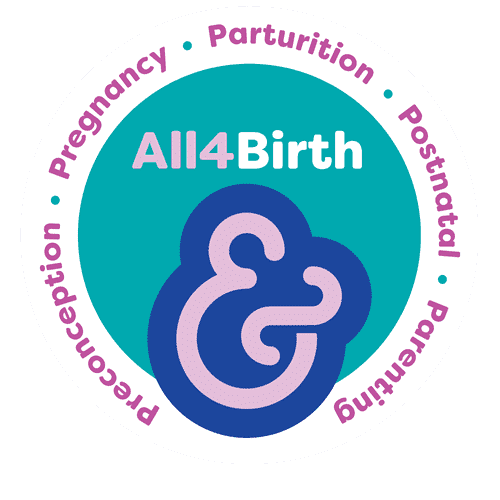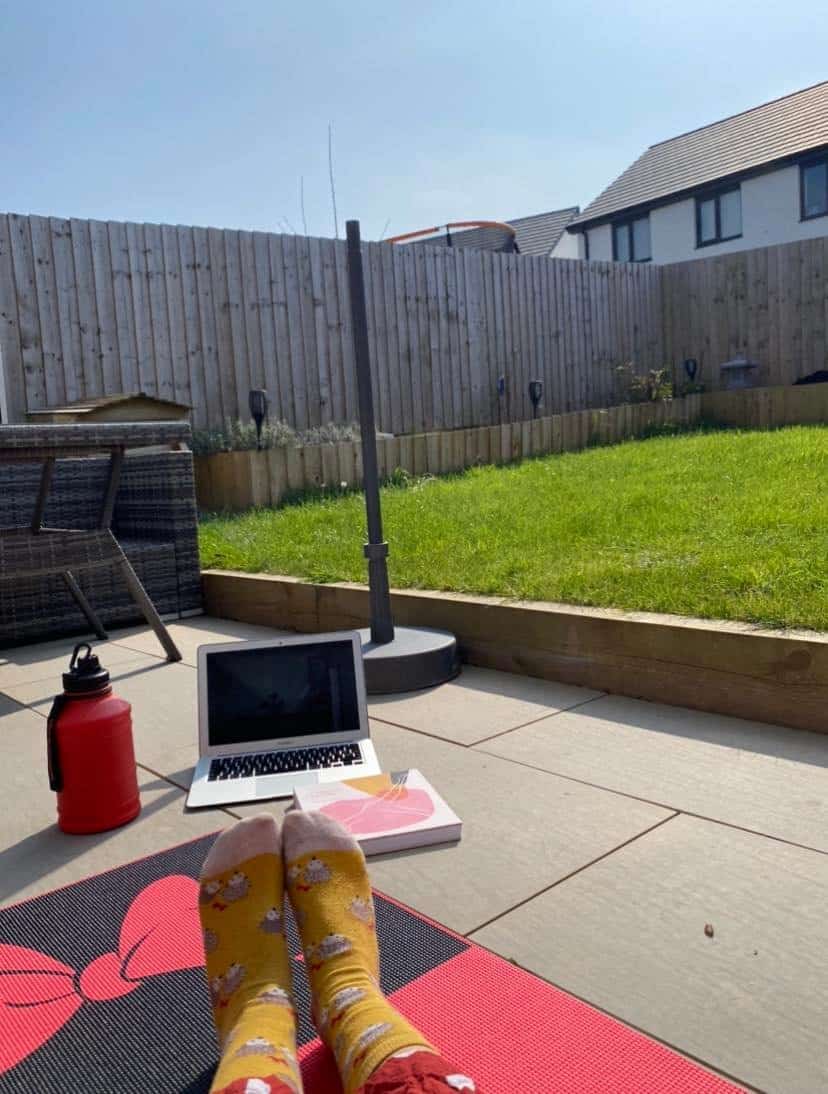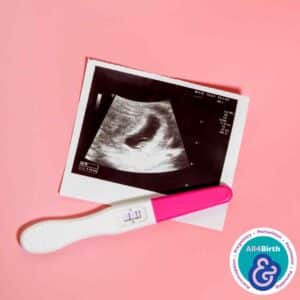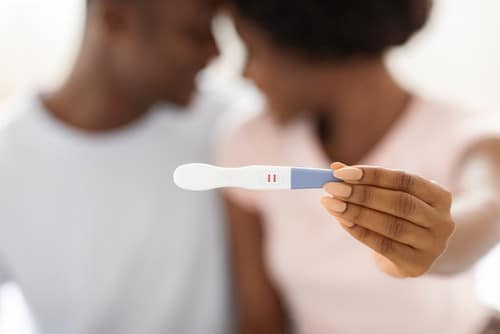Hyperemesis Gravidarum -Understanding extreme pregnancy sickness
Charlotte Howden
Charlotte Howden is a Campaigner and Film Producer from Winchester in the UK. You can follow her at @the_sick_film on Instagram and @thesickfilmHG on Facebook.
Summary
Feeling sick or being sick when you are pregnant is a usual, expected, and a common part of pregnancy that usually subsides after the first trimester but can last up to week 16-20 of pregnancy. Hyperemesis Gravidarum is not normal and is at the extreme end of the pregnancy sickness spectrum affecting 1-3 women in every 100.1 Women with Hyperemesis typically experience extreme and debilitating nausea and being sick many times a day leaving them unable to stomach food and drink. Unlike usual pregnancy sickness, Hyperemesis rarely ends after the first trimester and can continue throughout the entire pregnancy. Hyperemesis Gravidarum is commonly abbreviated to HG.
How will I know if I have Hyperemesis Gravidarum?
Every woman’s experience with Hyperemesis will be different but the crucial thing to remember is that pregnancy sickness is manageable without intervention, and Hyperemesis is not.
Pregnancy sickness is a well-known condition and something that is portrayed throughout the media and within our own society as normal, and for the vast majority it is. But, if your sickness and nausea is preventing you from being able to keep food and fluids down, and function as normal for the majority of your day and usual pregnancy sickness strategies such as eating as soon as you wake up, or eating little and often and avoiding strong smelling foods isn’t working then you should speak to your GP.
How is Hyperemesis Gravidarum diagnosed?
There is no internationally agreed definition on how to diagnose Hyperemesis Gravidarum but in the UK we follow the guidance from the Royal College of Obstetricians & Gynaecologists who state that:
“HG is characterised by severe, protracted nausea and vomiting associated with weight loss of more than 5% of pre-pregnancy weight, dehydration, and electrolyte imbalances.” 2
Don’t worry if you do not meet all of these criterions. Some women don’t actually lose 5% of their body weight because they aren’t actually sick (known as vomitless Hyperemesis) but the extreme nausea is still so debilitating that they cannot function as normal.
What are some of the other symptoms of Hyperemesis Gravidarum?
Not being able to keep down enough food and drink can result in dehydration and other symptoms such as dizziness, feeling faint, weight loss and low blood pressure.
Sufferers may also experience heightened sense of smell, excessive saliva production an d may get triggered by, lights, fast movements, and sensations like brushing their teeth or showering could set off a vomiting or nauseous episode.
d may get triggered by, lights, fast movements, and sensations like brushing their teeth or showering could set off a vomiting or nauseous episode.
Is there a cure for Hyperemesis Gravidarum?
There is currently no cure for HG. Recent studies have uncovered two genes that we think are responsible for it, so as we continue to decipher what these genes do and why they do it, there is hope that there will be a cure in the future.3 In the meantime we can at least say that this is a “real” condition and that genetics play a part. So if you are dismissed as being “dramatic”, “not strong enough to cope with pregnancy” or told to “to just get on with it” please seek a second opinion or show your care providers the research that contradicts these dismissive statements.
What should I do if I think I have Hyperemesis Gravidarum?
See your GP straight away. As there is no cure, managing the condition as early as possible is crucial to trying to prevent any unnecessary or prolonged suffering from the symptoms. There are many medications that can be used to help lessen or stop the vomiting and help ease the nausea. The goal is to enable you to eat and drink enough so that you do not become severely dehydrated. If you do become dehydrated it can make the sickness worse and trigger new symptoms as those mentioned above.
How can Hyperemesis Gravidarum be treated?
With HG there is a ladder of medications that you can try, and you will be started on the lowest rung of the ladder to see if these first line medications can help. If you can, try to keep a diary of how you feel at certain times of the day, how many times a day you are able to go to the toilet, how many times you have been sick and for how long you feel nauseous to enable your GP to see if the medication is being effective.
If you are dehydrated, you will be referred to your Early Pregnancy Unit or a similar Unit for IV fluids. You maybe admitted overnight as an inpatient or if you live near once of the specialised HG Day Units in the UK, you may be admitted as an outpatient 4 Ask your consultant or nurse on the unit how to self-refer in the future.
How easy is it to get access to medication?
Some women do report that GPs are reluctant to prescribe any medication in pregnancy for fears of harming the baby and/or due to a lack of education and understanding amongst health care professionals. If you are being dismissed please reach out to the Pregnancy Sickness Support charity who will be able to advise you on how best to advocate for yourself. They can provide you with information to show your GP about the numerous medications that can be taken and that have a plethora of safety data and research around them being prescribed in pregnancy.

For more advice about medication in pregnancy and a breakdown of each medicine available for use to help manage Hyperemesis please visit the Pregnancy Sickness Support website.5
What other advice would you give to a HG sufferer?
Try and get your fluid however you can. Freeze drinks in ice cubes and suck on them throughout the day. Have non smelling snacks available close by should you feel like you can eat. If you can, try to fortify the food you do eat so that you take in more calories. Instead of half fat milk, butter or cheese for example go for full fat!
Ultimately you must eat what your body will allow you to eat. If this is something that you would normally consider to be unhealthy or something not as nutritious as fruit and vegetables, please do not worry. Just eat what you can.
Support is vital. Whether this come from your immediate family, friends or via an online support group or a combination, you will need people to help you through this. From my own experience, until I was given access to medication, I was unable to work and my husband had to do everything for me.
I needed him to do these things for me because I was simply too weak to do them myself. I was also unable to be in certain parts of the house due to the smells that would trigger my symptoms, this meant that I was isolated to my bedroom for long periods of time.
Ask for help, do not feel ashamed or guilty about people doing things for you, taking care of your children, or offering to cook for your family. This is temporary and whilst it is not possible to say for how long you will have Hyperemesis, we always hope for the best but plan for the worst.
Get support online. There are HG support groups on social media that can really help you to express what you are going through. These groups are a safe place where you can vent, shout, and talk about your pregnancy symptoms. It is very hard for other people to understand what you are experiencing and you may feel like you can’t complain especially if other women in your friendship or peer group have struggled with infertility. This is not your fault and what you are experiencing can be very traumatic and you have the right to express your feelings.
Get an HG buddy. Pregnancy Sickness Support have an incredible peer network that offers one-to-one peer support provided by women who have previously suffered from an HG pregnancy.
What affect will this have on my mental health?
Hyperemesis is a lonely condition. You may spend periods of time isolated and it will seem like everyone else in the world is continuing with their lives whilst you are unable to get about your house due to triggers, movements and smells.
Women with HG are 8 times more likely to suffer with antenatal depression and 4 times as likely to suffer with post-natal depression.6 So, you will need to find an outlet to discuss how you are feeling. Someone women keep a diary or a blog, some women use drawing therapy and writing therapy to process what they are going through.
If at any point you feel like you are suicidal or depressed and are experiencing intrusive thoughts, please tell your midwife or GP. As a pregnant woman in the perinatal period your concerns should be listened to and you should be referred to your local perinatal mental health team. If for any reason this does not happen and If you live in England, you can refer yourself to an NHS psychological therapies service (IAPT).
IAPT (Improving Access to Psychological Therapies) services offer NICE recommended therapies, such as cognitive behavioural therapy (CBT), for common problems involving stress, anxiety, and depression. 7
If you need help immediately please contact one of the suicide prevention organisations in the website links below.
Is there anything I can show to my friends and family to help them understand?
In 2018 I started filming the world’s first documentary about Hyperemesis. Sick – The Battle Against HG is a 30-minute film that explores this life changing condition and was launched on Prime Video in the UK & US in September 2020. I am also the producer and host of the Hyperemesis Files Podcast which acts as a platform for sufferers and survivors to share their stories and their journey with HG. Links to both of these resources can be found below.
Links to resources
 Video
Video
Sick The Battle Against HG – www.amazon.co.uk/dp/B08GL4FLR5
 Websites
Websites
Pregnancy Sickness Support – https://www.pregnancysicknesssupport.org.uk/get-help/treatments/hg-day-clinics-across-the-uk/https://pandasfoundation.org.uk/
The Hyperemesis Files Podcast – http://hyperemesisfiles.buzzsprout.com/
References
1. NHS Online Your pregnancy and baby guide. Severe vomiting in pregnancy. www.nhs.uk/conditions/pregnancy-and-baby/severe-vomiting-in-pregnancy-hyperemesis-gravidarum/. Accessed November 2020
2. The Management of Nausea and Vomiting of Pregnancy and Hyperemesis Gravidarum. Royal College of Obstetricians & Gynaecologists. June 2016. Green Top Guideline No. 69 www.rcog.org.uk/globalassets/documents/guidelines/green-top-guidelines/gtg69-hyperemesis.pdf . Accessed November 2020
3. Marlena S. Fejzo, Olga V. Sazonova, J. Fah Sathirapongsasuti, Ingileif B. Hallgrímsdóttir, Vladimir Vacic, Kimber W. MacGibbon, Frederic P. Schoenberg, Nicholas Mancuso, Dennis J. Slamon, Patrick M. Mullin& 23andMe Research Team, 2018. Placenta and appetite genes GDF15 and IGFBP7 are associated with hyperemesis gravidarum. www.nature.com/articles/s41467-018-03258-0#:~:text=Placenta%20and%20appetite%20genes%20GDF15,with%20hyperemesis%20gravidarum%20%7C%20. Accessed November 2020
4.HG Day Clinics Across the UK www.pregnancysicknesssupport.org.uk/get-help/treatments/hg-day-clinics-across-the-uk/ . Accessed November 2020
5. Pregnancy Sickness Support Online. www.pregnancysicknesssupport.org.uk/get-help/treatments/ . Accessed November 2020
6. NHS Imperial College Healthcare Online News. October 2014 www.imperial.nhs.uk/about-us/news/severe-morning-sickness-research . Accessed November 2020
7.NHS Directory for Psychological Therapies www.nhs.uk/service-search/find-a-psychological-therapies-service/ . Accessed November 2020










